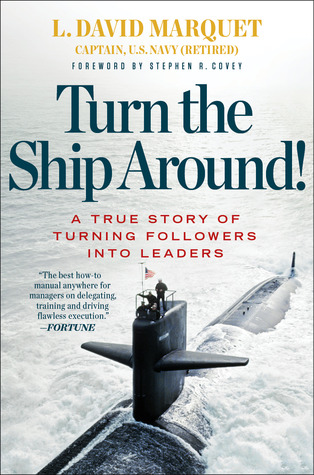More on this book
Community
Kindle Notes & Highlights
Read between
July 20 - August 1, 2022
You may be able to “buy” a person’s back with a paycheck, position, power, or fear, but a human being’s genius, passion, loyalty, and tenacious creativity are volunteered only. The world’s greatest problems will be solved by passionate, unleashed “volunteers.”
Leadership is communicating to people their worth and potential so clearly that they are inspired to see it in themselves.
One of the things that limits our learning is our belief that we already know something.
The best way not to make a mistake is not to do anything or make any decisions.
“Don’t move information to authority, move authority to the information.”
The first step in changing the genetic code of any organization or system is delegating control, or decision-making authority, as much as is comfortable, and then adding a pinch more.
I called this the paradox of “caring but not caring”—that is, caring intimately about your subordinates and the organization but caring little about the organizational consequences to yourself.
When you’re trying to change employees’ behaviors, you have basically two approaches to choose from: change your own thinking and hope this leads to new behavior, or change your behavior and hope this leads to new thinking.
ACTING YOUR WAY TO NEW THINKING is a mechanism for CONTROL.
SHORT, EARLY CONVERSATIONS is a mechanism for CONTROL. It is a mechanism for control because the conversations did not consist of me telling them what to do. They were opportunities for the crew to get early feedback on how they were tackling problems. This allowed them to retain control of the solution. These early, quick discussions also provided clarity to the crew about what we wanted to accomplish. Many lasted only thirty seconds, but they saved hours of time.
Eventually we turned everything upside down. Instead of one captain giving orders to 134 men, we would have 135 independent, energetic, emotionally committed and engaged men thinking about what we needed to do and ways to do it right. This process turned them into active leaders as opposed to passive followers.
Don’t preach and hope for ownership; implement mechanisms that actually give ownership. Eliminating the tickler did that for us. Eliminating top-down monitoring systems will do it for you. I’m not talking about eliminating data collection and measuring processes that simply report conditions without judgment. Those are important as they “make the invisible visible.” What you want to avoid are the systems whereby senior personnel are determining what junior personnel should be doing.


